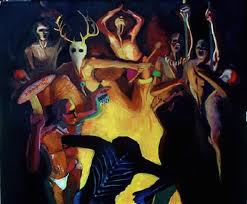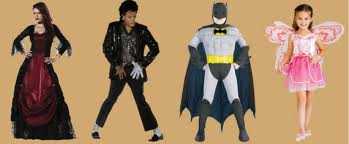[W]hat we mean by “archetype” is itself irrepresentable, but has effects which make visualizations of it possible, namely the archetypal images and ideas.” Carl Jung, “On the Nature of the Psyche” (1947/1954), CW 8, par. 417.
A reader has asked me some questions about the Lover and Beloved archetypes. Before I answer them I want to remind you that the whole concept of archetypes was only introduced to the West about 100 years ago and for everything we think we understand about them, there’s much more we don’t. Here’s what I think right now.
Q: “What is the difference between the Beloved and the true self? Is the Beloved the true self?”
A: As I wrote in my book, Healing the Sacred Divide, the term Beloved connotes many different things. In your physical life it can mean the person you love above all others and with whom you enjoy sexual intimacy.
Psychologically the Beloved is the beautiful, soulful, feeling, emotional, magnetic feminine aspects of our true selves that attract and inspire our masculine ego/Lover to undertake the search for love, pleasure and union. In Christianity it often refers to Jesus, or the Church, the body of Christ which is God’s beloved. Beloved can also be an encompassing term for the soul, or for all the feminine archetypes making up the feminine side of the Self, or it can mean the Self itself: our spiritual essence, the sacred Other with whom we wish to unite, our true self, the Christ within, and so on.
Q: “Is the Lover the one loving and the Beloved the one loved?”
A: Essentially, yes. The Lover is the part of us that pursues love and pleasure, (physical, and spiritual), and the Beloved is the part that attracts and accepts love and pleasure and is a willing companion and supporter of the Lover.
 Q: “If our Beloved is unawakened, or doesn’t feel loved by our Lover, is that why the Beloved carries around so many unacknowledged feelings?”
Q: “If our Beloved is unawakened, or doesn’t feel loved by our Lover, is that why the Beloved carries around so many unacknowledged feelings?”
A: Both your Beloved and Lover can be unawakened, which means that you will have trouble feeling and/or accepting the positive emotions of love and pleasure or will tend to look for them in the wrong places. Until our Lover is awakened—which usually occurs when we have traumatic conflicts or experiences that compel us to acknowledge and work with our honest feelings and needs—he will not have the passion to search for love and awaken our Beloved’s positive and tender feelings. Until he does, she will still be asleep, carrying all our unacknowledged feelings in our unconscious, and our conscious egos will not have access to them.
Q: “I thought the Shadow carried the unacknowledged feelings.”
A: Our Shadow does include the unacknowledged feelings of the Lover and Beloved, but it also contains unacknowledged qualities other than emotions. Some are mental, like the shadow Sage’s dogmatic, know-it-all, one-sided ideas and opinions, or like an immature Mediatrix’s tendency to be too gullible, receptive and permissive. Other unacknowledged qualities can be unconscious social behaviors, like the shadow Father”s dominating, superior, authoritarian manner.
Q. How can I learn more about the archetypes in myself?
 A. Many who are fascinated with the psyche have tried to draw clear boundaries around the archetypes. I’ve worked for years to devise a framework that could help me understand my archetypal self, and I’ve passed on what’s been useful in my new book, The Soul’s Twins. However, nobody knows for sure how closely our descriptions fit reality. In truth, it’s not possible to fully understand archetypes.
A. Many who are fascinated with the psyche have tried to draw clear boundaries around the archetypes. I’ve worked for years to devise a framework that could help me understand my archetypal self, and I’ve passed on what’s been useful in my new book, The Soul’s Twins. However, nobody knows for sure how closely our descriptions fit reality. In truth, it’s not possible to fully understand archetypes.
Archetypes are unconscious, inborn, psychological patterns. We can become more aware of them by paying attention to the Gods, Goddesses, heroes, fools, helpers, lovers, sorcerers, and other characters portrayed in films and myths. One of the most fruitful things you can do is to notice the characters that remind you of yourself, then reflect on how their stories play out. This can give you an idea of what needs to happen to you if you want your story to have a positive outcome, or what you should change to avoid a negative outcome.
Myths and stories tell the truths of our souls, and the characters are images of archetypes in us. You’ll discover that the characters who had positive outcomes endured humbling experiences that inspired them to accept some of their disowned qualities, and the ones who had negative outcomes refused to change. If you want more help identifying your disowned qualities, the Partnership Profile in Chapter 2 of The Soul’s Twins, will highlight them for you.
Here’s something else to reflect on: When you dress up for Halloween, what archetypal energy are you trying to express? Do you express it in your waking life? Did your last Halloween costume express the qualities of your most highly activated archetype, or did it express energies you have not been able to manifest in any other way?
Jean Raffa’s The Bridge to Wholeness and Dream Theatres of the Soul are at Amazon. E-book versions are also at Kobo, Barnes And Noble and Smashwords. Her Wilbur Award-winning book, Healing the Sacred Divide can be found at Amazon and Larson Publications.com. Her new Nautilus Award-winning book, The Soul’s Twins, is available at Schiffer, Red Feather Mind, Body, Spirit and wherever books are sold. Subscribe to her newsletter at www.jeanbenedictraffa.com.




10 Responses
Thanks Jeanie, this was very helpful. Ah, that shadow, ever present. Your last question about how one would dress on Halloween Day gives me cause to pause and wonder. Love, Susan
Sorry I took so long to respond. I’ve been traveling and setting things in order. Thanks for your comment Diane. I’m glad it was helpful. We are such mysteries to ourselves, and every little insight helps. One Halloween I dressed as The Long Ranger and Fred was Tonto! Another year I was an equestrian and Fred was the horse! You can see which one of us chooses the costumes!!! 🙂
Surely, it is very kind of you, dear Jeane, to be present for such questions. Though, I find your book full understandable. It is so clear teaching that I’ve never read before. Thank you so much.
I’m very glad to hear you think so, Aladin. I know that many people struggle with the idea of archetypes, finding it difficult to imagine that there’s something very real and powerful and Other in them that they’ve never known about. Our age has so much to learn about our psyches. I believe it’s imperative that we learn soon. Thank you so much for writing. Jeanie
Thanks are from my side. I think that I can be proud of myself 😉 or humbly your declaration is good enough. Thank you as well my dear teacher 🙏🌹😘❤
I’m sure you can be proud of yourself. You seem to be studying hard, and learning a lot. And fast! Jeanie
Much appreciated. It’s amazing that we need to search ourselves and observe others, openly, to understand more. No “hard and fast” doctrine. I like that.
Yes, I guess the only hard and fast doctrine I hold to is to love yourself and others. Of course, to love others you have to be able to love your true self and accept the bad with the good. That’s the really hard part. We want to think well of ourselves and don’t want to see, let alone accept, the reality of our shadows. But that’s how our ego is humbled and learns compassion. Thank you for writing, Eugene.
Wonderful. There are never too many explanations or examples when it comes to these hidden realms. I struggled with the term Archetype when I was first introduced to it in my early 20s. What could it possibly be? When I gave birth to my first son at age 25, one of my first thoughts while holding him and feeling that rush of exquisite love was, “Ah, this is an archetype. The Mother Archetype.” Once I was permeated with that, I could begin to see other archetypes, too, but that was one of those intuitive unforgettable moments. Believe me, I wasn’t in a thinking mode as I went through natural unmedicated labor, but the idea exploded in consciousness when he was resting against my breast, snoozing in my arms. My love for Jung and understanding of how much his wisdom could help me began with that experience.
Dear Elaine, I love your story. It’s an absolutely perfect example of what an archetype is: a powerful emotion that feels like a numinous explosion in consciousness! Jung wrote: “The archetypal is a powerful emotion brought into its original form.” With your rush of exquisite love you knew you’d been touched by an archetype. I really love that. It Thank you for sharing it here.